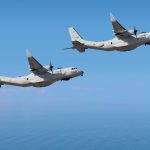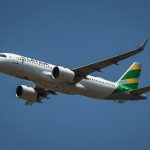For the first time, a civil jet landed on an Australian road for a medical emergency mission in the Outback.
Landing on roads by airplanes is not so unusual, but it is predominantly carried out by military aircraft. However, civil operations are virtually non-existent, with the exceptions being emergency landings. But in the Australian Outback, the situation is different: there are several approved and marked roads to serve as landing strips.
Given that it has dozens of isolated communities, Australia, through the Royal Flying Doctor Service (RFDS), has a medical team ready to fly to remote locations, often landing on unprepared dirt or gravel strips.
The newest plane of the RFDS, the Pilatus PC-24 jet, already has the capability to operate on these unconventional runways, but it had never operated on a road, which was an operation hitherto only carried out by propeller-driven civil planes.
And this week, the RFDS carried out its first operation with the PC-24 on a road, which was closed by emergency teams and also featured an operation from its smaller turboprop sibling, the PC-12.
Here is the video:
The Pilatus PC-24 program made its maiden flight in May 2015 and obtained certification from EASA and the FAA in December 2017, prior to its first delivery to a customer in February 2018.
Configured for 6 passengers, it has a range of 3,704 kilometers at a cruising speed of 815 km/h. It is powered by two Williams FJ44-4A engines.
It has a length of 16.85 meters and a wingspan of 17 meters, with a maximum takeoff weight of 8,500 kg.














